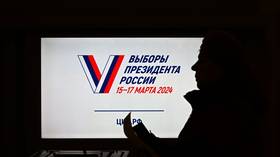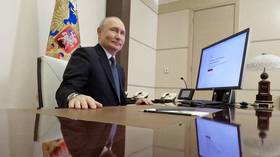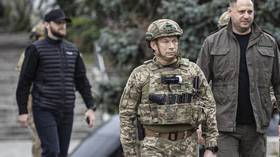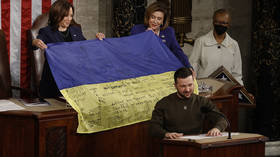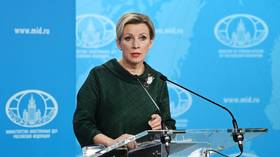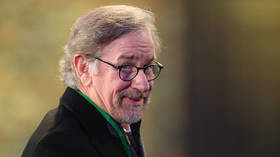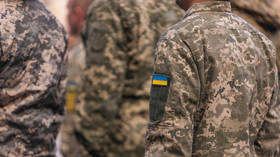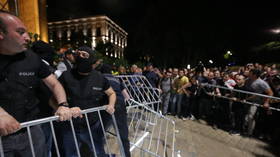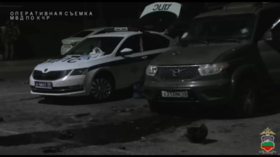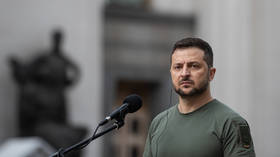Polling stations close in Russia’s presidential election
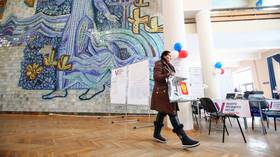
More than 74% of Russia’s 112.3 million voters had cast their ballots in the nation’s presidential elections by the time polling stations closed on Sunday, the Russian Central Election Commission (CEC) has reported. This election’s voter turnout is a historic record for modern Russia.
Voting was held over three days, between March 15 and 17, the first time Russia has arranged this. Polling stations were opened from 8am local time to 8pm on each of the three days. Voters in 29 out of 89 Russia’s regions, including Moscow – the nation’s most populous region, incorporating the capital city – also had an opportunity to vote online, in another first.
According to the state online-voting monitoring portal, more than 4.7 million people applied for the right to cast their ballot online and ultimately over 90% did so. The 2024 election is also the first in which voters in four new Russian regions participated – Kherson and Zaporozhye, as well as Donetsk and Lugansk People’s Republics.
The highest turnout at polling stations was reported in the regions of Chechnya (96%), Tuva (more than 94%%), Kemerovo Region (94%) and Donetsk People’s Republic (88.17%). Low turnouts were recorded in the Tomsk and Altai Regions as well as in Russia’s Republic of Karelia, where it was still above 51%.
Abroad, a total of 230 polling stations provided an opportunity for Russians living abroad to cast their ballots. According to the Russian foreign ministry, more than 125,000 Russians used this facility.
Some sporadic attempts at disrupting the work of the polling stations occurred. About 30 of these were attempts to set ballot boxes on fire or to pour a dyed liquid into the box to destroy the votes in it, Russian media reported. According to the CEC, a total of 214 ballots were irreversibly damaged in those attacks. CEC head Ella Pamfilova also said that more than 280 hacking attacks on the online voting system have been repelled.
This year voters had a choice of four candidates on their ballot papers. Apart from the incumbent, Vladimir Putin, all other candidates were nominated by parliamentary parties. As he did in 2018, Putin is running as an independent and has the support of three political forces: the governing United Russia party, the opposition party Fair Russia - For Truth, and the Rodina party.
The Communist Party candidate was Nikolay Kharitonov – a veteran politician and, at 75, the oldest participant in the race. He was also a presidential candidate in the 2004 election and finished second, behind only Putin.
The Liberal Democratic Party (LDPR) nominated its new leader, Leonid Slutsky, as a candidate. He took over the reins of the party in 2022, when its long-time leader, Vladimir Zhirinovsky, died due to Covid-19 complications.
The New People party, created ahead of the 2021 parliamentary election, nominated an MP from the State Duma, Vladislav Davankov. A member of the budget and tax committee, he also became a State Duma vice chairman under United Russia’s Vyacheslav Volodin. At 40, Davankov is also the youngest candidate in the race.
An exit poll conducted by Russia's statistics agency VCIOM showed Putin was leading by a wide margin, enjoying the support of some 87% of voters. Communist Nikolay Kharitonov is projected to take second place, with 4.6% of the votes. Vladislav Davankov is believed to have closely followed, with 4.2%, and Leonid Slutsky was on course to end up fourth, with 3%.
